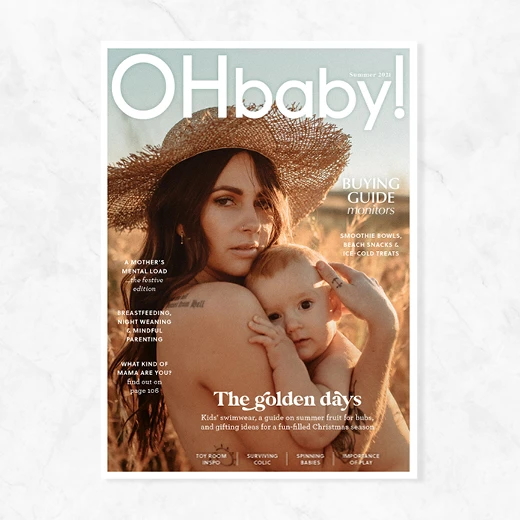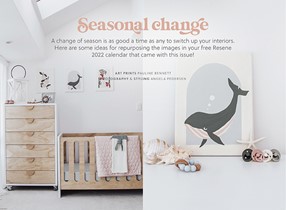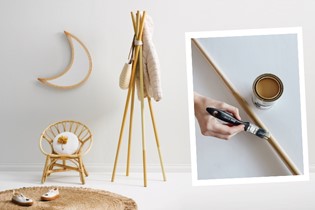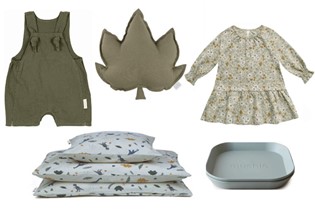Parenting course: the balance between connection with your kids and boundaries

This is the final part in our three-part series introducing you to the OHbaby! Renew Your Mind, Mindful Parenting Course.
Developed with Chantal Hofstee, mum of three and clinical psychologist, the online course is split up into six practical sessions which teach techniques to help manage stress and resolve conflicts, increase connection in difficult times and create a calmer and happier home.
Read on for a taster of what you can expect from the course, you can find PART ONE HERE and PART TWO HERE.
To find out more or to book into the online course, visit ohbaby.co.nz/mindfulparenting
Raising children can bring out the best and worst in us. Clinical psychologist and mum of three, Chantal Hofstee, shares how understanding our parenting style can help us find the right balance between connection and boundaries.
We are all different and that is an amazing thing, life would be so boring if we all operated in the same way. If you have more than one child you will also be very aware of the differences between your children, even though they grow up in the same environment, they can have very different personalities.
Most of us have a vague idea what our personality is like and have taken a personality test at some stage. We can pinpoint whether we are introverted or extroverted, agreeable or disagreeable, analytical (left brain dominated) or creative and emotional (right brain dominated). These categories are on the one hand, over simplistic and on the other hand, there is plenty of research in psychology that supports the existence of distinct personality categories and how they are linked to certain tendencies of experiencing the world and behaviour.

What I find so interesting about parenting and personality is that parenting puts everything under such pressure that our personalities seem to come out even more, the good, the bad, and the ugly. If you were emotional before you had children, having children will have likely made you even more emotional. If you were prone to anxiety and overthinking, having children has given you 10,000 more things to worry about and overthink. If you were prone to stress and frustration, having children will have provided you with triple the amount of stress and frustration triggers. Where before children we might have been able to coast through life covering up or smoothing over our ‘bad and ugly’ traits or tendencies, the stress and pressure of parenting little ones has likely made this much harder.
Rather than fighting hard to keep our unwanted or unhelpful personality traits and tendencies ‘under control’ a much more effective and empowering approach is to understand yourself (warts and all), and with those insights, consciously work towards enhancing the ‘good’ parts of your personality and 'cushioning' the less desirable parts. For some of us this involves working through issues and trauma in counselling, for some of us practising a mindful way of thinking does the trick, for others identifying and changing core beliefs is the most effective way. Whatever route resonates more, the journey and goals are essentially the same – becoming a more aware and mindful parent by 1) knowing yourself 2) identifying what you want to change or ‘cushion’ 3) making a conscious effort to accomplishing this cushioning.
As we have covered in part one of this three-part series, high levels of stress ‘hijack’ your brain and remove any form of cushioning and strongly reduce your self-control. This means that when we are in red brain, the less desirable elements of our personalities are most likely to rear their ugly head. If you are a ‘shouty mum’ a perfect day on the beach when everyone is getting along and having fun isn’t likely to bring out the shouty part of your personality. If you are a worrier you will know that being stressed increases your worries significantly. In green brain the cushioning is naturally there and our willpower is operating well, which means we are much better able to parent in the way we want.
Every personality style has a desirable side which is most likely to be at the forefront when the person is in green brain and an undesirable side which is most likely to be in the forefront when the person is in red brain. For example, an assertive mum who is good at boundaries in green brain is likely to turn into an angry shouty mum when in red brain. A caring and compassionate mum in green brain is likely to overdo it in red brain and become a self-sacrificing, helicopter mum in red brain. A mum who is generous and giving in green brain might end up overindulging and giving in to unhelpful demands and behaviours when she is in red brain. In green brain our parenting approach is still coloured by our personality but it tends to be more balanced and incorporates both the heart and the box (connection and boundaries). In red brain the unhelpful version of our personality shows up and leads to unbalanced parenting which tends to fixate on either boundaries or connection but rarely will have a good balance of both and as a result doesn’t lead to a green brain environment for the parent or the child.
THE HEART (connection) OR THE BOX (boundaries)
- Which comes more naturally to you, the heart or the box?
- What can you consciously do/put in place to strengthen the element that doesn’t come naturally to you?
- When you are stressed, what is most likely to come under pressure, the heart or the box?
- When stressed, what can you do to maintain both the heart and the box?
THE THREE PARENTING ARCHETYPES
No model is perfect but some are helpful. Based on our personality and amplified by the pressures of parenting little people, it is very common that people are naturally good at one of the two fundamentals of balanced parenting. You are likely to be good at connection and empathy (the heart) or at clear and consistent routines and boundaries (the box). It is rare to find a person who is naturally good at both. When we are under stress we tend to overdo one of the two and lose the balance; what was in green brain a positive of our personality can cross over into unhelpful. In the short term we can manage and overcome this, but if the stress is prolonged or shows up in our lives often, we are at risk of parenting in ways we don’t want. Based on what naturally comes easiest to you, there are three parenting archetypes that we can identify.

THE FIXER MUM – STRONG HEART, WEAK BOX
🤍 Strengths: reliable, helpful, trustworthy, problem solvers
🤍 Risks: always stressed, lack of self-care, taking over responsibilities from others, burning out
🤍 Emotional signal: feeling overburdened/anxious
🤍 Common core belief: my children need me
🤍 Mantra: I will fix it
🤍 Underlying motivation: If you need me you will love me
🤍 Bring balance back: self-care, stronger boundaries, more follow through with consequences
In green brain the fixer mum is loving, caring and very involved with her children but when under pressure has a tendency to take over responsibility from her children and discards her own needs leaving her running on empty. She provides the warm and loving safe place they need to retreat for support and reassurance but has a tendency to be inconsistent in her boundaries and not follow through because she doesn’t want to see her kids upset or unhappy. This inevitably leads to red brain in her and the risk exists that she robs her children from the valuable experience of taking responsibility for their actions and to take ownership of their behaviour in an age appropriate way. The risk is that she ends up burned out and that her children become the authority in the house or over dependent on her.
Mantra: you cannot pour from an empty cup

THE ASSERTIVE MUM – WEAK HEART, STRONG BOX
🤍 Strengths: energy, lots of ideas, inspiring, sees opportunities for improvement everywhere
🤍 Risks: starting but not finishing, impatient, not seeing the small wins
🤍 Emotional signal: frustration
🤍 Common core belief: I need to be in control/listened to
🤍 Mantra: If you would only...
🤍 Underlying motivation: As long as I am in control things will be okay
🤍 Bring balance back: Slow down, self-care, practise conscious connection, listening and empathy
In green brain the assertive mum is driven, inspiring and full of energy and ideas. She has high expectations of both herself and her children, she wants what is best for her children and works hard to keep all the balls in the air. She is assertive when it comes to disrespect, is good at setting and maintaining clear boundaries and not afraid to follow through. In red brain she is at risk of expecting too much from her children and getting angry or blaming them when they don’t live up to her standards, instead of connecting, being accepting and meeting her children where they are at. This can lead to disconnect and frustration with both mum and child feeling unheard and misunderstood which only fuels difficult behaviours in both leading to increasing distance.
Mantra: connection first

THE FRIEND MUM – STRONG HEART, WEAK BOX
🤍 Strengths: values relationships, compassionate, caring, convincing
🤍 Risks: lack of authority, accountability, and consistency
🤍 Emotional signal: feeling stuck
🤍 Common core belief: life is to be enjoyed
🤍 Mantra: I don’t see why not
🤍 Underlying motivation: as long as you like me you will love me
🤍 Bring balance: set age appropriate boundaries, take responsibility for the parental role, practise your ‘no’, train resilience in your children
The friend mum loves her children dearly and wants what is best for them. She has a resistance to creating boundaries that aren’t necessary as she hates seeing her children upset or wanting. She loves giving them their every heart's desire and thinks the world of her children but is at risk of failing to see that the rest of the world isn’t so tolerant when it comes to bad manners or demanding behaviours. In the long run she doesn’t provide her children with the valuable life experiences that teach resilience, hard work and dealing with disappointment; leaving them vulnerable to setbacks later in life.
Mantra: be the parent, not the buddy
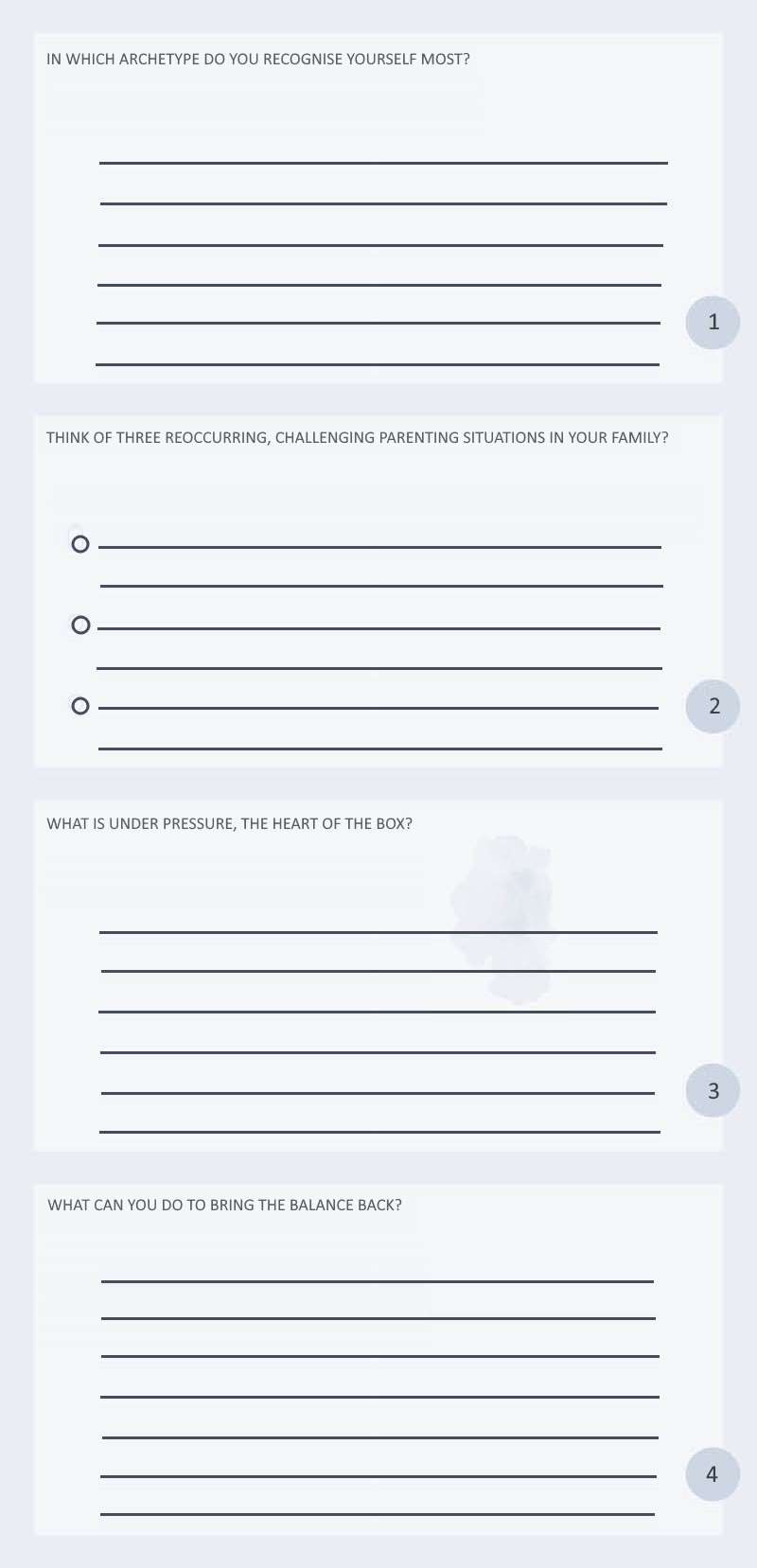
Chantal Hofstee is the mindful mum of Sem, Isha & Leon, a clinical psychologist, an executive coach and the author of Renew Your Mind and Reach Your Goals Without Stressing Out. Find out more at renewyourmind.co.nz.

AS FEATURED IN ISSUE 56 OF OHbaby! MAGAZINE. CHECK OUT OTHER ARTICLES IN THIS ISSUE BELOW
